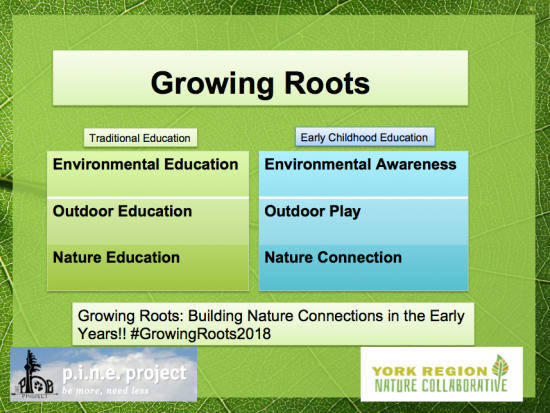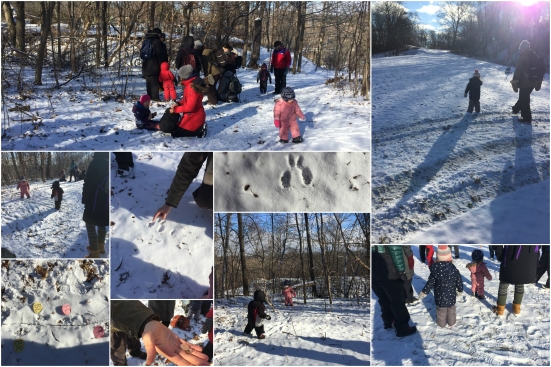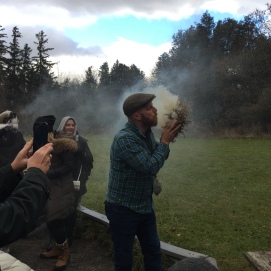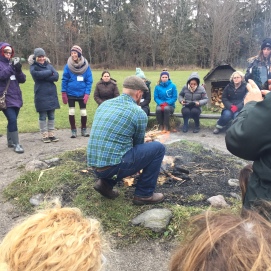I regret to say that when I worked with young children I did not fully embrace the opportunity to help them build nature connections. I have made that confession in a previous post. However, in the last five or six years, nature pedagogy has become both a passion and a research focus.
In my work with the York Region Nature Collaborative I have had multiple opportunities to be involved with many different professional learning experiences that take place outside. I recognize now because of these experiences how important it is for early years teachers to embrace nature and outdoor play. The emphasis needs to be on the play. This is how young children learn. What I have come to realize is that it is not about teaching children about nature or the environment, it is about young children becoming aware of the environment. It is about opportunities to play and in the process connect.

I am very excited about the upcoming York Region Nature Collaborative spring conference Growing Roots: Building Nature Connections in the Early Years, May 5th at the beautiful Kortright Centre. This conference is in partnership with the p.i.n.e project. I had the opportunity to visit one of the p.i.n.e project’s programs Oaks and Acorns last year. That day I realized the significance of the mentoring approach to building nature connections. While the children played, the adults were mentored. On this sunny day with a sprinkling of fresh snow on the ground we focused on animal tracks. The premise is that supporting the acquisition of the parent’s nature connections will impact the children. There will be a time that is right for the children to acquire nature knowledge but on this day they wanted to play. When that time is right, the parents have the confidence, knowledge and especially the questioning approach to mentor the children, supporting their learning in a way that is not direct teaching.

It was such a magical morning and as a result I wanted to share the mentoring approach with others. Through the York Region Nature Collaborative Andrew McMartin from the p.i.n.e project has facilitated two workshops. During the Rhythm of Learning in Nature #Rhythm2017 participants had the opportunity to connect to nature on a hot summer day. This past November Andrew was back to facilitate another workshop. I am excited about his return to be the keynote speaker at #GrowingRoots2018 conference.
In addition to the keynote address, representatives from the p.i.n.e project will be facilitating these amazing workshops:
- Wild about Plants
- Birds and Bird Language
- Working with Fire
- Mentoring Techniques
- Tracking the Stories of the Landscape
At the last York Region Nature Collaborative spring conference we included an option for attendees to bring their children. There was such positive response that this feature was added to this year’s conference. Participants can sign up their children to attend the Nature Camp, run by the p.i.n.e project team. Learn more about the building nature connections and the mentoring approach by attending the conference. Rachel Carson considered the finest nature writer of the 20th century supported the concept of mentoring. She suggested that it “includes nature in storm as well as calm by night as well as day, and is based on having fun together rather than on teaching” (Carson, 1956, p.10). Let’s have fun together on May 5th! Attend #GrowingRoots2018!



Be the first to comment
Sign in with